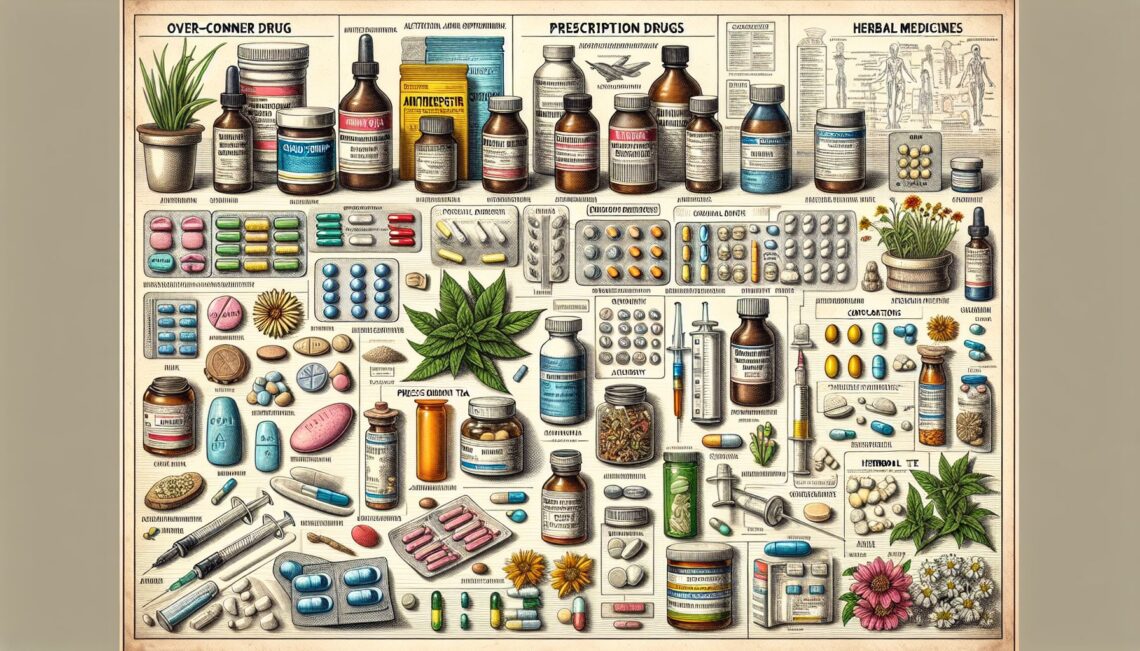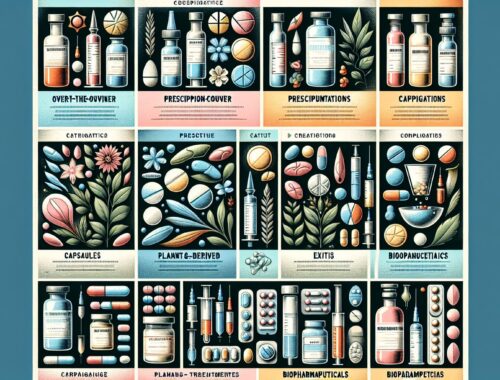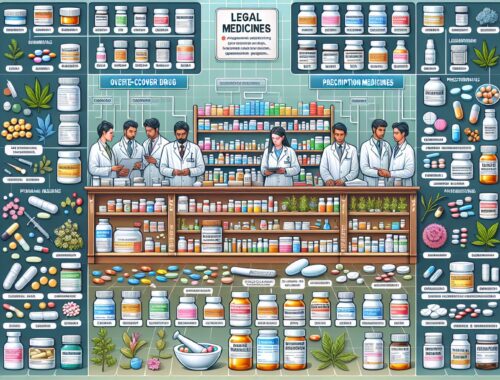
Understanding the Different Types of Medicines
Medicine plays a vital role in treating illnesses and improving our overall health. With countless medications available in the market, it is crucial to understand the different types and their purposes. Let’s take a closer look at the primary categories of medicines commonly used today.
Introduction to Medicines
Medicines are substances formulated to prevent, treat, or cure diseases, alleviate symptoms, or maintain good health. They are developed using a mixture of ingredients, including chemical compounds, herbs, minerals, and even biological substances. Medications can be administered orally, topically, through inhalation, or via injection, depending on the specific requirements of the treatment.
Types of Medicines
1. Over-the-Counter Medicines (OTC)
Over-the-counter medicines, commonly known as OTC medicines, are available for purchase without a prescription. These medications are generally used to alleviate minor ailments such as headaches, common colds, allergies, indigestion, and skin conditions. Common examples of OTC medicines include pain relievers like ibuprofen, antihistamines such as loratadine, and topical creams like hydrocortisone.
2. Prescription Medicines
Prescription medicines are medications that require a written prescription from a licensed healthcare professional. These drugs are usually used to treat chronic or severe ailments that necessitate careful monitoring or specific dosing. Examples of prescription drugs include antibiotics, antidepressants, insulin, and specific cancer treatments. It is important to take prescription medicines exactly as instructed and report any side effects to the healthcare provider.
3. Herbal and Natural Medicines
Herbal and natural medicines are derived from plants, minerals, and animal products. These medications have been used for centuries in various cultures for their healing properties. Common examples include herbal tea blends like chamomile for relaxation, ginger for nausea, and turmeric for its anti-inflammatory effects. Despite being labeled as natural, it is important to note that herbal remedies can still interact with other medications, so consulting a healthcare professional before using them is advisable.
4. Vaccines
Vaccines are substances prepared from either weakened or killed microorganisms to provide immunity against specific diseases. By introducing a small, harmless portion of a pathogen into the body, vaccines stimulate the immune system to create a defense mechanism against potential future infections. Administered in the form of injections, vaccines have effectively prevented numerous infectious diseases worldwide, such as polio, measles, and influenza.
5. Alternative and Complementary Medicines
Alternative and complementary medicines refer to a range of therapeutic practices that are used alongside or instead of conventional medical treatments. These may include practices like acupuncture, chiropractic care, homeopathy, and aromatherapy. While some individuals find relief from these practices, it is essential to approach them with caution and discuss their use with a healthcare professional as they are not scientifically proven or regulated in the same way as traditional medications.
Conclusion
Medicines come in various forms and serve distinct purposes, whether to alleviate symptoms, fight infections, or prevent diseases altogether. Understanding the different types of medicines available empowers individuals to make informed decisions about their health. Remember, responsible medication usage involves following instructions carefully and consulting healthcare professionals for proper guidance. Stay healthy and make educated choices when it comes to your well-being!
Note: This blog post provides general information and should not replace professional medical advice. Always consult a healthcare provider for specific concerns and questions regarding medications.
You May Also Like

Understanding the Different Types of Medicines
January 20, 2024
The Different Types of Medicines
January 2, 2024

